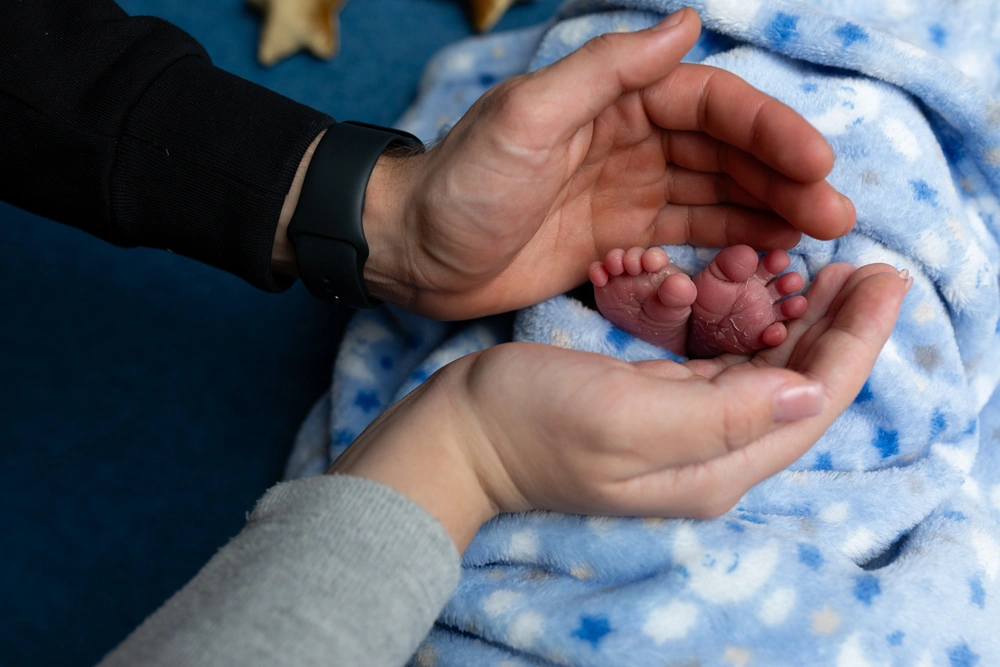Congenital syphilis is a serious and preventable condition that can be transmitted from an infected mother to the baby.
Here’s all you need to know about it.
What is congenital syphilis?
Congenital syphilis is a serious disease caused by the bacterium Treponema pallidum. is transmitted from an infected mother to her baby during pregnancy or childbirth.
This disease can lead to severe health issues for the infant, including:
- Deformities
- Developmental delays
- Stillbirth
How is congenital syphilis transmitted?
Congenital syphilis is primarily transmitted in two critical ways: through the placenta during pregnancy or during birth through contact with syphilitic sores.
During pregnancy
If you’re pregnant and have syphilis, you may pass the bacterium to your baby through the placenta.
During birth
Your baby can also be exposed to syphilis during birth if they come into contact with active syphilitic lesions.
What are the symptoms of congenital syphilis in newborns?
Newborns with congenital syphilis may exhibit a range of symptoms, which include:
- Distinctive rash that appears specifically on the palms and soles
- Fever
- Irritability
- Swollen liver and spleen, which may potentially lead to jaundice
- Nasal discharge (Snuffles)
- Anemia
- Low platelet count
Why is early diagnosis important?
Early diagnosis of congenital syphilis for your baby is critical because it prevents long-term complications, such as:
- Deafness
- Blindness
- Developmental delays
Also, learning about the condition early can help with:
- Improving treatment effectiveness
- Reducing transmission rates
- Improving the quality of life
- Reducing the health burden among the community
How is congenital syphilis diagnosed?
To diagnose congenital syphilis, your healthcare provider will order or conduct the following tests to your newborn:
- A blood test to detect syphilis antibodies
- A physical examination to identify characteristic symptoms that suggest infection
- X-rays and other imaging tests to reveal bone abnormalities
- Long bone x-rays to spot lesions indicative of congenital syphilis
How do you treat congenital syphilis?
The cornerstone of treating congenital syphilis is penicillin therapy. Depending on the disease’s stage and the symptoms presented, your healthcare provider may require multiple doses for comprehensive treatment and recovery. This underscores the critical need for early detection and prompt intervention to secure the best possible health outcomes for affected newborns.
How do you prevent congenital syphilis?
If you’re pregnant, show up for your prenatal screening to identify and treat syphilis early in the pregnancy.
Early treatment of infected mothers significantly lowers the risk of passing the infection to the fetus.
Frequently asked questions
What causes congenital syphilis?
Congenital syphilis results from the transmission of syphilis from an infected mother to her baby during pregnancy or childbirth. This condition is caused by the bacterium Treponema pallidum.
How is congenital syphilis diagnosed?
Diagnosis involves a combination of physical examination, identification of signs in the infant, and laboratory tests.
What are the symptoms of congenital syphilis in newborns?
Symptoms in newborns can include rash, fever, swollen liver and spleen, jaundice, anemia and various deformities. Infected infants may also show signs of pneumonia and neurological issues.
Can congenital syphilis be prevented?
Yes, congenital syphilis can be prevented by treating the pregnant mother who has syphilis early in her pregnancy, which prevents the bacterium from infecting the fetus.
What is the treatment for congenital syphilis?
Treatment typically involves administering penicillin to the infected infant. The exact dosage and length of treatment depend on the severity of the infection and the infant’s overall health.
Key takeaway
Congenital syphilis remains a significant yet preventable health concern.
To protect yourself and your kid, get diagnosed and do regular prenatal screening. Early treatment can prevent severe complications in newborns.




















































